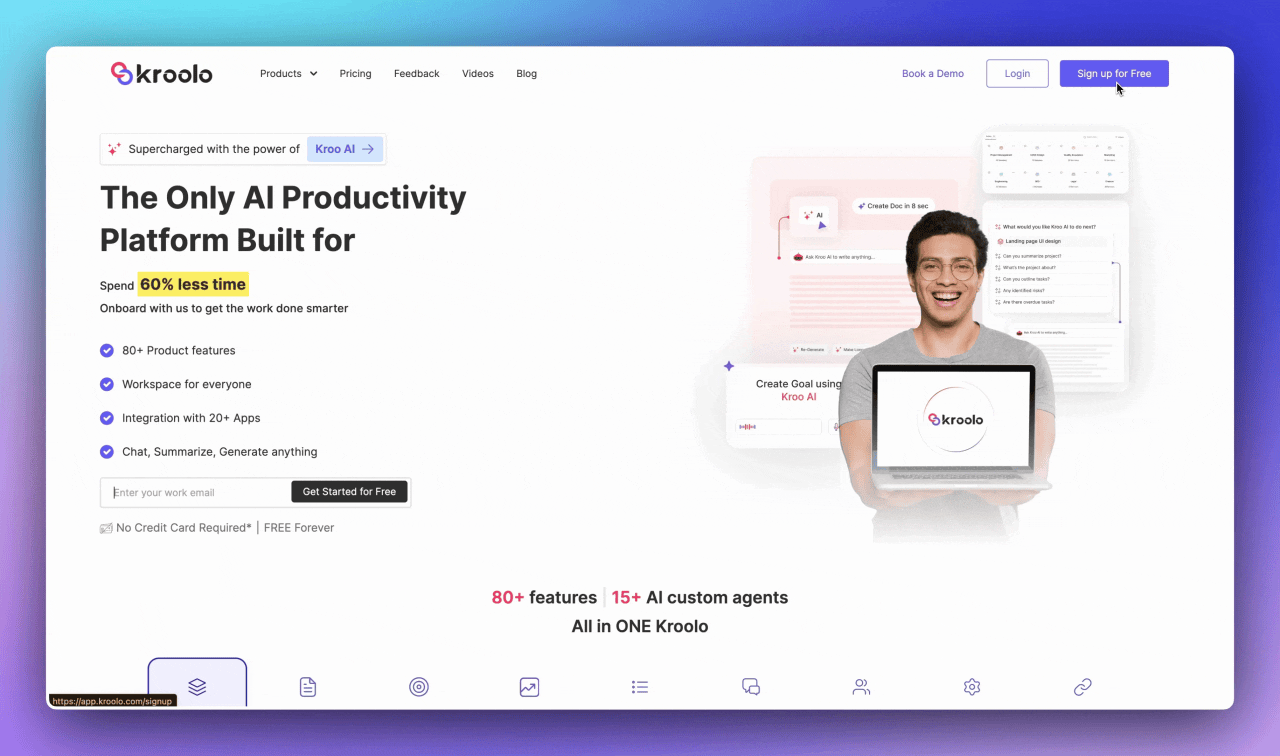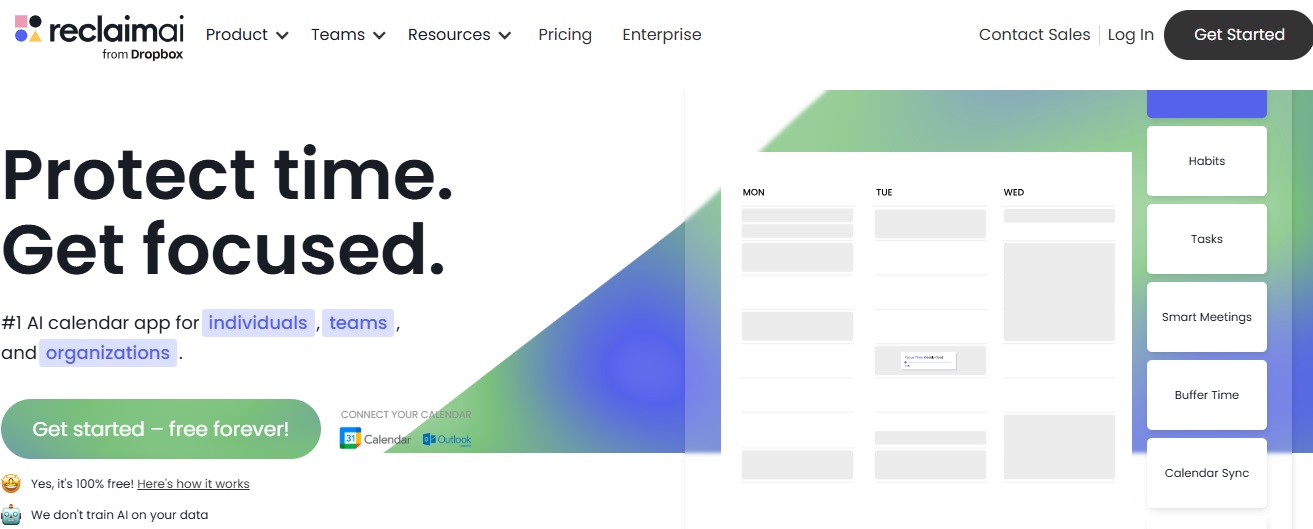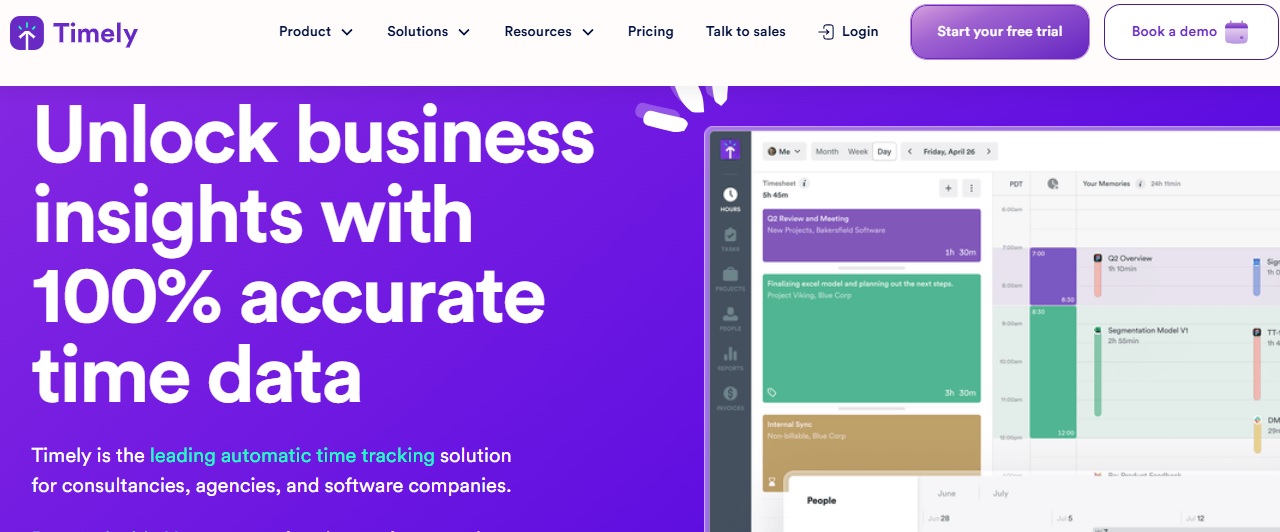


Jul 14, 2025
-
By Ivan
In today's fast-paced digital landscape, effective time management has become the cornerstone of professional success and personal well-being. As workloads intensify and distractions multiply, professionals are increasingly turning to artificial intelligence to optimize their productivity and reclaim control over their schedules. AI time management represents a paradigm shift from traditional planning methods to intelligent, adaptive systems that learn from user behavior and automatically optimize workflows for maximum efficiency.
The integration of AI into time management isn't just a technological trend—it's a fundamental transformation of how we approach productivity. These intelligent systems can analyze vast amounts of data, predict patterns, and make real-time adjustments that would be impossible for humans to process manually. From automated scheduling to intelligent task prioritization, AI tools are empowering individuals and teams to achieve unprecedented levels of efficiency while reducing stress and improving work-life balance.
Artificial intelligence transforms time management through sophisticated algorithms that process multiple variables simultaneously to create optimal schedules and workflows. Unlike traditional time management approaches that rely on static planning, AI systems continuously learn from user behavior, environmental factors, and performance metrics to deliver personalized recommendations. This dynamic approach ensures that time management strategies evolve with changing circumstances and individual preferences.
The foundation of AI time management lies in machine learning algorithms that can identify patterns in work habits, predict task duration with remarkable accuracy, and automatically adjust schedules based on real-time changes. These systems utilize natural language processing to understand context from emails, messages, and documents, while predictive analytics help forecast potential bottlenecks and scheduling conflicts before they occur.
Machine learning algorithms form the backbone of modern AI time management systems by analyzing historical data to predict future patterns and optimize resource allocation. These algorithms can process thousands of variables including task complexity, individual work patterns, team dynamics, and external factors to create highly personalized productivity recommendations. The continuous learning process means that the system becomes more accurate and effective over time, adapting to changing work styles and priorities.
Advanced algorithms can identify productivity peaks and valleys throughout the day, automatically scheduling high-priority tasks during optimal performance windows while reserving routine activities for lower-energy periods. This intelligent scheduling approach can increase productivity by up to 30% while reducing the cognitive load associated with constant decision-making about task prioritization.
Natural language processing (NLP) enables AI systems to understand context and intent from written communications, automatically extracting actionable tasks from emails, messages, and documents. This capability eliminates the manual effort required to translate communications into structured tasks, significantly reducing administrative overhead and ensuring that important items don't fall through the cracks.
Modern NLP systems can analyze sentiment, urgency indicators, and contextual clues to automatically assign priority levels and due dates to tasks. This intelligent interpretation of human communication creates a seamless bridge between informal communication and structured task management, enabling more natural and efficient workflow management.
Predictive analytics in AI time management systems analyze historical patterns to forecast future workload demands, potential conflicts, and resource requirements. This proactive approach enables users to address challenges before they become problems, maintaining smooth workflow continuity and preventing last-minute scheduling crises.
These systems can predict project timelines with remarkable accuracy by analyzing similar past projects, team performance metrics, and external factors. The ability to forecast completion times and identify potential delays enables better resource allocation and more realistic deadline setting, ultimately improving project success rates and reducing stress.
The landscape of AI-powered time management tools has evolved rapidly, offering sophisticated solutions that cater to diverse productivity needs and work styles. These tools leverage cutting-edge artificial intelligence to automate routine tasks, optimize schedules, and provide intelligent insights that enhance decision-making. From comprehensive project management platforms to specialized scheduling assistants, the current generation of AI tools represents a significant leap forward in productivity technology.
Leading AI time management tools combine multiple functionalities into unified platforms, eliminating the need for disparate systems and creating seamless workflows. These integrated solutions not only save time but also provide comprehensive visibility into productivity patterns, enabling data-driven improvements to work processes and team dynamics.

Kroolo: AI-powered time management is a shift towards intelligent, adaptive, and human-centered productivity approaches. It allows individuals and organizations to achieve goals while maintaining work-life balance. AI time management involves tools like Kroolo, Motion, and Reclaim.ai offer scalable solutions for improving productivity, reducing stress, and enhancing decision-making.
These tools are accessible today and can be used by solo entrepreneurs or large organizations. Kroolo's AI-powered platform offers intelligent automation, predictive analytics, and seamless integration capabilities, transforming tasks, projects, and team collaboration. Sign up for Kroolo today to experience the future of time management.

Motion represents the pinnacle of AI-driven scheduling technology, combining intelligent task prioritization with automated calendar management to create optimized daily schedules. The platform's AI engine analyzes workload, priorities, and availability to automatically schedule tasks and meetings, adapting in real-time to changes and conflicts. Motion's sophisticated algorithms can process up to a million different schedule options daily to find optimal meeting times for teams.
The ai time management tool's strength lies in its ability to balance productivity with personal well-being by automatically protecting time for deep work and preventing meeting overload. Motion's AI assistant provides early warnings about potential deadline conflicts, enabling proactive adjustments that maintain project momentum while reducing stress.

Reclaim.ai specializes in intelligent calendar management, offering unlimited calendar synchronization and smart scheduling that adapts to changing priorities. The platform excels at managing multiple roles and responsibilities by displaying all calendars in a unified view while automatically adjusting time blocks based on urgency and importance. Reclaim.ai's flexible time blocking feature maximizes meeting availability without sacrificing productive work time.
The tool's AI scheduling assistant creates personalized weekly plans that account for individual preferences, work patterns, and external commitments. This personalized approach ensures that schedules remain realistic and achievable while maximizing productivity potential.

TimeHero distinguishes itself through automated task planning that analyzes activities and builds comprehensive action plans for best ai time management. The platform automatically schedules tasks into calendars based on deadlines, priorities, and availability, while providing valuable insights into team productivity patterns. TimeHero's automation capabilities extend to workflow templates and smart notifications that keep teams aligned without requiring constant check-ins.
The tool's strength lies in its ability to provide real-time visibility into team capacity and workload distribution, enabling managers to make informed decisions about task assignment and resource allocation.

Clockwise focuses specifically on meeting optimization and focus time protection, using AI time management to analyze complex schedules and resolve conflicts automatically. The platform can process vast amounts of scheduling data to find optimal meeting times while preserving blocks of uninterrupted work time. Clockwise's custom time blocking feature allows team members to reserve time for various activities while maintaining scheduling flexibility.
The tool's narrow focus on meeting management makes it particularly effective for teams struggling with meeting overload and fragmented schedules.

Timely offers automatic (ai time management) tracking that captures detailed activity data without manual input, using AI to categorize work activities and generate comprehensive timesheets. The platform's Memory feature records applications used, websites visited, and documents worked on, providing unprecedented visibility into time utilization patterns. This automatic tracking eliminates the administrative burden of manual time logging while providing accurate data for productivity analysis.
Timely's AI-powered insights help users identify productivity patterns, optimize work schedules, and make data-driven decisions about time allocation.
The integration of artificial intelligence into time management delivers transformative benefits that extend far beyond simple task organization. These advantages represent fundamental improvements in how individuals and teams approach productivity, creating sustainable systems that adapt and evolve with changing needs. The compound effect of these benefits creates a productivity multiplier that can significantly impact both professional success and personal well-being.
AI time management systems eliminate many of the cognitive burdens associated with traditional planning methods, freeing mental resources for creative and strategic thinking. This shift from reactive to proactive time management enables users to focus on high-value activities while the AI handles routine optimization and administrative tasks.
AI for time management excel at analyzing multiple variables simultaneously to determine optimal task prioritization and scheduling. These systems consider factors such as deadlines, dependencies, resource availability, and individual work patterns to create intelligent priority rankings that maximize productivity and minimize stress. The ai time management eliminates decision fatigue while ensuring that critical tasks receive appropriate attention.
Advanced prioritization algorithms can adapt to changing circumstances in real-time, automatically adjusting schedules when new urgent tasks emerge or when delays occur. This dynamic responsiveness ensures that work remains aligned with current priorities without requiring constant manual intervention.
Intelligent automation in AI time management systems can increase productivity by up to 30% by eliminating repetitive tasks and optimizing workflow sequences. These systems automate routine activities such as meeting scheduling, email management, and status updates, freeing users to focus on high-value creative and strategic work. The cumulative time savings from automation can amount to several hours per week for typical knowledge workers.
Automation also reduces the likelihood of human error in scheduling and task management, creating more reliable and consistent workflows. This reliability enables better planning and reduces the stress associated with missed deadlines or forgotten commitments.
AI systems learn from individual work patterns and preferences to create highly personalized workflow recommendations. This personalization extends beyond simple scheduling to include optimal work environments, preferred communication methods, and individual productivity rhythms. The result is an ai time management system that feels natural and intuitive while maximizing individual effectiveness.
Personalized optimization also accounts for team dynamics and collaboration patterns, ensuring that individual productivity improvements don't come at the expense of team cohesion. This balanced approach creates sustainable productivity gains that benefit both individuals and organizations.
Predictive analytics capabilities enable AI systems to forecast potential challenges and opportunities before they materialize. This proactive approach allows users to address issues before they become problems, maintaining smooth workflow continuity and preventing crisis management scenarios. Predictive insights can identify resource constraints, potential delays, and optimization opportunities that might otherwise go unnoticed.
The ability to predict project timelines and resource requirements with high accuracy enables better planning and more realistic goal setting. This improved forecasting reduces the stress associated with unrealistic expectations while improving overall project success rates.
AI time management systems contribute significantly to stress reduction by eliminating the cognitive burden of constant planning and decision-making. These systems handle routine optimization tasks automatically, allowing users to focus on meaningful work without worrying about scheduling conflicts or missed deadlines. The result is a more relaxed and focused work environment that supports both productivity and well-being.
Intelligent scheduling also helps maintain work-life balance by automatically protecting personal time and preventing work from expanding beyond reasonable boundaries. This balance is essential for long-term productivity and career sustainability.
AI systems provide comprehensive analytics and insights that enable continuous improvement in time management practices. These insights reveal productivity patterns, identify optimization opportunities, and track progress toward goals with unprecedented detail. The data-driven approach eliminates guesswork from productivity improvement, enabling targeted interventions that deliver measurable results.
Regular analysis of time utilization patterns helps users identify and eliminate time-wasting activities while reinforcing productive behaviors. This continuous optimization creates a virtuous cycle of improvement that compounds over time.
Successfully implementing AI for time management tools requires a strategic approach that considers organizational culture, individual preferences, and existing workflows. The transition from traditional time management methods to AI-powered systems represents a significant change that must be managed carefully to ensure adoption and maximize benefits. Effective implementation strategies focus on gradual integration, comprehensive training, and continuous optimization based on user feedback and performance metrics.
The key to successful AI time management implementation lies in understanding that these tools are not just technological upgrades but fundamental changes in how work is organized and executed. This transformation requires careful planning, stakeholder buy-in, and a commitment to ongoing refinement and optimization.
Successful AI time management implementation begins with gradual integration that allows users to adapt to new workflows without overwhelming existing processes. This approach involves starting with basic features and progressively introducing more advanced capabilities as users become comfortable with the system. Gradual integration reduces resistance to change while allowing organizations to identify and address potential issues before they become significant problems.
Change management strategies should include clear communication about the benefits of AI time management, comprehensive training programs, and ongoing support to help users maximize the value of these tools. Leadership support and visible commitment to the implementation process are essential for creating organizational buy-in and ensuring successful adoption.
Effective AI time management implementation requires extensive customization to match individual work styles, team dynamics, and organizational requirements. This customization process should begin with thorough analysis of existing workflows, productivity patterns, and user preferences to ensure that the AI system aligns with actual work practices rather than imposing artificial constraints.
Best practices for customization include creating user profiles that capture individual preferences, establishing team-specific workflows that reflect collaboration patterns, and implementing organizational policies that guide AI decision-making. Regular review and refinement of these customizations ensure that the system continues to evolve with changing needs and circumstances.
Comprehensive training programs are essential for successful AI time management adoption, focusing not just on technical features but on the strategic benefits and best practices for maximizing productivity gains. Training should be tailored to different user roles and experience levels, with hands-on practice opportunities and ongoing support resources to reinforce learning and address questions as they arise.
Adoption strategies should include identifying and training power users who can serve as internal advocates and support resources for their colleagues. These champions can help drive adoption by demonstrating the benefits of AI time management and providing peer-to-peer support during the transition period.
Successful AI time management implementation requires seamless integration with existing business systems, communication tools, and workflow processes. This integration eliminates data silos and ensures that the AI system has access to all relevant information needed for optimal decision-making. Common integration points include email systems, calendar applications, project management tools, and communication platforms.
Technical integration should be complemented by process integration that aligns AI time management workflows with existing business processes. This alignment ensures that the AI system enhances rather than disrupts established work patterns while providing opportunities for process improvement and optimization.
Ongoing performance monitoring is crucial for maximizing the benefits of AI time management implementation. This monitoring should track both quantitative metrics such as productivity gains and time savings, as well as qualitative measures such as user satisfaction and stress levels. Regular analysis of these metrics enables continuous optimization and refinement of the AI system.
Optimization strategies should include regular review of AI recommendations and decisions, adjustment of system parameters based on performance data, and incorporation of user feedback to improve system effectiveness. This continuous improvement approach ensures that the AI time management system evolves with changing needs and delivers sustained value over time.
The future of AI for time management promises even more sophisticated and intuitive systems that will fundamentally transform how we approach productivity and work organization. Emerging technologies such as advanced natural language processing, computer vision, and quantum computing will enable AI systems to understand context and intent with unprecedented accuracy while processing vast amounts of data in real-time. These developments will create time management systems that are not just reactive but truly predictive and proactive.
The convergence of AI with other emerging technologies such as augmented reality, Internet of Things devices, and blockchain will create comprehensive productivity ecosystems that seamlessly integrate all aspects of worcdk and personal life. These integrated systems will provide holistic time management solutions that consider not just work tasks but also personal goals, health metrics, and life priorities.
Future AI time management systems will leverage advanced predictive analytics to forecast productivity patterns, resource requirements, and potential challenges with remarkable accuracy. These systems will analyze vast datasets including historical performance, market trends, and external factors to provide strategic insights that enable proactive decision-making. The ability to predict and prevent productivity bottlenecks will become a key competitive advantage for organizations.
Machine learning algorithms will become increasingly sophisticated in their ability to model complex relationships between variables, enabling more accurate predictions about project timelines, resource needs, and optimal work schedules. This enhanced forecasting capability will support better strategic planning and resource allocation across organizations.
The next generation of AI time management tools will offer hyper-personalization that adapts not just to work patterns but to individual cognitive styles, emotional states, and life circumstances. These systems will use biometric data, behavioral analysis, and contextual information to create deeply personalized productivity recommendations that evolve continuously with changing needs and preferences.
Adaptive intelligence will enable AI systems to recognize and respond to subtle changes in user behavior, stress levels, and performance patterns, automatically adjusting recommendations and workflows to maintain optimal productivity while supporting well-being. This level of personalization will create time management systems that feel truly intuitive and supportive.
Future AI time management systems will integrate seamlessly with emerging technologies such as augmented reality interfaces, voice-activated assistants, and IoT devices to create immersive productivity environments. These integrations will enable more natural and intuitive interactions with time management systems while providing real-time feedback and guidance throughout the workday.
The integration of AI for time management with smart building systems, wearable devices, and environmental sensors will create comprehensive productivity ecosystems that optimize not just schedules but also physical environments for maximum effectiveness. This holistic approach will consider factors such as lighting, temperature, noise levels, and air quality in productivity optimization.
Advanced AI systems will excel at optimizing team dynamics and collaborative workflows by analyzing communication patterns, individual strengths, and project requirements to create optimal team configurations and work assignments. These systems will facilitate more effective collaboration by predicting and preventing conflicts, identifying complementary skill sets, and optimizing meeting schedules for maximum productivity.
Collaborative intelligence will also enable AI systems to learn from collective team knowledge and experience, creating organizational memory that improves decision-making and prevents the repetition of past mistakes. This collective learning approach will create continuously improving productivity systems that benefit from the accumulated wisdom of entire organizations.
Organizations investing in AI in time management solutions must adopt strategic approaches to maximize return on investment while ensuring sustainable productivity improvements. The key to achieving significant ROI lies in comprehensive implementation planning, thorough user training, and continuous optimization based on performance metrics and user feedback. Successful organizations treat AI-powered time management as a strategic initiative rather than a simple technology upgrade, investing in change management and cultural transformation alongside technical implementation.
The most successful AI for time management implementations focus on measurable outcomes such as time savings, productivity gains, and stress reduction while also considering qualitative benefits such as improved work-life balance and job satisfaction. This holistic approach to ROI measurement ensures that organizations capture the full value of their AI time management investment while building sustainable competitive advantages.
Effective ROI measurement for AI in time management requires comprehensive tracking of both quantitative and qualitative metrics that reflect the full impact of these systems on organizational productivity. Key performance indicators should include time savings per employee, productivity improvements, reduction in missed deadlines, and improvements in project completion rates. These metrics provide concrete evidence of the value delivered by AI-powered time management systems.
Qualitative metrics such as employee satisfaction, stress levels, and work-life balance are equally important for understanding the full impact of AI time management implementation. Regular surveys and feedback sessions can capture these softer benefits while providing insights for continuous improvement and optimization.
Comprehensive cost-benefit analysis for AI time management should consider both direct costs such as software licensing and implementation services, as well as indirect costs such as training time and productivity disruption during transition periods. The analysis should also account for long-term benefits such as reduced turnover, improved employee satisfaction, and enhanced organizational agility.
Long-term value creation from AI time management extends beyond immediate productivity gains to include strategic advantages such as improved decision-making, enhanced innovation capacity, and greater organizational resilience. These strategic benefits often provide the greatest long-term ROI but may be more difficult to quantify in traditional financial terms.
Successful scaling of AI time management requires careful planning and phased implementation that considers organizational capacity for change and the complexity of existing workflows. Organizations should develop clear scaling strategies that prioritize high-impact areas while building internal capabilities for ongoing system management and optimization.
Organizational transformation through AI time management involves not just technology adoption but fundamental changes in how work is organized, managed, and evaluated. This transformation requires strong leadership commitment, comprehensive change management, and ongoing investment in employee development and support.

Conclusion
Embracing the AI-Powered Future of Productivity
AI-powered time management is a shift towards intelligent, adaptive, and human-centered productivity approaches. It allows individuals and organizations to achieve goals while maintaining work-life balance. AI tools like Kroolo, Motion, and Reclaim.ai offer scalable solutions for improving productivity, reducing stress, and enhancing decision-making.
These tools are accessible today and can be used by solo entrepreneurs or large organizations. Kroolo's AI-powered platform offers intelligent automation, predictive analytics, and seamless integration capabilities, transforming tasks, projects, and team collaboration.
Sign up for Kroolo today to experience the future of time management.
Tags
Time Management
Productivity
AI